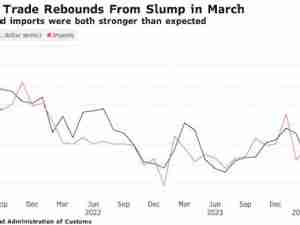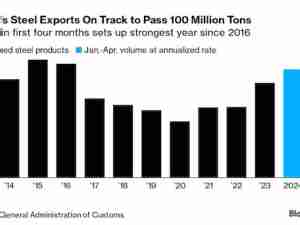Seattle’s Boom Is Boon for Tax-Raising Politicians
By: | Aug 28 2017 at 10:19 AM | International Trade
President Donald Trump has renewed his attacks on Amazon, essentially calling it a tax shirker. As with many assertions, Trump is wrong. The e-commerce behemoth does pay taxes. But in its hometown of Seattle, where the politics could not be more different from the president’s, that’s not enough.
The recent Seattle mayoral primary featured a plan for a $100-per-employee “Amazon tax” on companies with 50 or more workers; a head tax is a perennial idea for the left-of-left Seattle City Council. In a city that never met a tax increase it didn’t love, if it is not an Amazon tax, it could be a tax on investment properties or a tax on vacant houses and condos. Tax something.
Seattleites blame Amazon’s mind-boggling expansion for soaring housing costs, increasing congestion and other problems. Never mind that other tech companies—Facebook and Google, for example—have offices here. The ire is reserved for Amazon Inc., which is building a giant campus downtown with roughly 12 million square feet of office space. A head tax in the city would hit not only the e-commerce and tech businesses, but also Northwest mainstays like Nordstrom, Weyerhaeuser and Starbucks.
If even one or two of the taxes under discussion are enacted, they can buy more affordable housing and maybe limit pervasive homelessness. But they will only ease a few symptoms of growth and at the margins. The great dive bars of Seattle will still disappear. New foofoo restaurants will open instead (the fun part of growth, I guess). Palpable angst will persist.
This summer, the city council unanimously approved a tax on individual income above $250,000 ($500,000 for couples), a levy that could affect roughly 13,000 people in a city of 704,000.
Since state law prohibits cities and counties from imposing income taxes, the vote is more of a statement against a regressive tax system that relies too heavily on sales and property taxes. Lawsuits have been filed, and the tax will likely be struck down.
The income tax would miss some of its targets in any case. The world’s two richest men, Microsoft co-founder Bill Gates and Jeff Bezos, CEO of Amazon, would not pay if the tax holds up in court. They live in a suburb outside the city.
So does entrepreneur Nick Hanauer, an early Amazon investor who wants the state to change the law. He backs a local or state income tax, as well as other measures to pay for affordable housing and move people out of homelessness. He is open to the head tax.
“You want good neighborhoods, schools, roads, fire, police, somebody has to pay for it,” he said. “And the people with money are where you have to go to get the money.”
Longer term, he said, “If the rich people in our city are slightly less rich and the poor people in our city are significantly better off, it will be both a better place to live and a robust economy.”
Statistics show the cost of living rising and the rich getting richer. But Seattle does not top the list of cities with the highest levels of income inequality, perhaps because many lower earners have been forced out.
Pretty much everyone wants to tap the region’s wealth.
In Washington State, the right as well as the left has tried to tap into some of the bounty from the boom. The Legislature, where Republicans dominated the final budget proceedings this year, slapped a huge property tax increase on Seattle and its tech-rich suburbs as part of a complicated formula to pay for public schools. In effect, Republicans showed they don’t mind higher taxes as long as it’s mostly Democrats paying them.
Seattle’s tax proclivities are not for everyone, and the so-called Amazon tax is in a category all its own.
Seattle prides itself on being fair and just, and a head tax ends up being the opposite, said Paul Guppy, vice president for research at the Washington Policy Center, a free-market think tank. “A head tax is offensive because it is a tax on breathing, a tax on showing up and traveling to Seattle and working.”
The income tax, he feels, is dumber still, because it eliminates Seattle’s competitive advantage in recruiting employees from Europe, India and California.
Studies on the effects of a head tax and a local income tax are mixed, said Justin Marlowe, professor of public finance at the University of Washington Evans School of Public Policy and Governance.
Earlier such taxes in New York and Kansas City in the 1960s and 1970s helped drive jobs out of the central city. But Marlowe thinks the situation is different now because a big part of Amazon’s draw is working in downtown Seattle.
“The notion that you as a business can just pick up and leave or that your workers are indifferent, I don’t know that that holds any longer,” he said. “The city can get away with it.” In any case, he added, “If you really wanted to make a strong case for imposing these taxes, now might be as good a time as any to try some of these taxes out.”
He says that not as an advocate.
“There is some evidence that the taxes do lead to local investments to mitigate the problems that come with growth, but not an approach that alleviates most of the infrastructure problems that accompany growth,” Marlowe said.
The same song, different verse, is playing in San Francisco. Last year, a committee of the city’s Board of Supervisors considered, then dropped, a tech tax to pay for affordable housing and homeless programs. Now, the idea of a vacancy tax has emerged.
Seattle’s tax paroxysms reflect raw resentment at too much change and too much money in other people’s hands. Folks are not bothered by any long-term implications of harming the goose that laid the golden egg.
In the end, “superstar” cities like Seattle and San Francisco are experiencing a kind of lefty version of Trumpism. If Trump voters rage against the liberal elites in these cities for their perceived advantages, liberals in tech hubs rail against economic upheaval.
Politicians’ natural inclination is to try to address the most visible and bothersome aspects of growth. A tax, any tax, is seen as a way to exert some control on places that are becoming less livable and less manageable—even if the revenues produced won’t make much difference in the long run.
This column does not necessarily reflect the opinion of the editorial board or Bloomberg LP and its owners.









